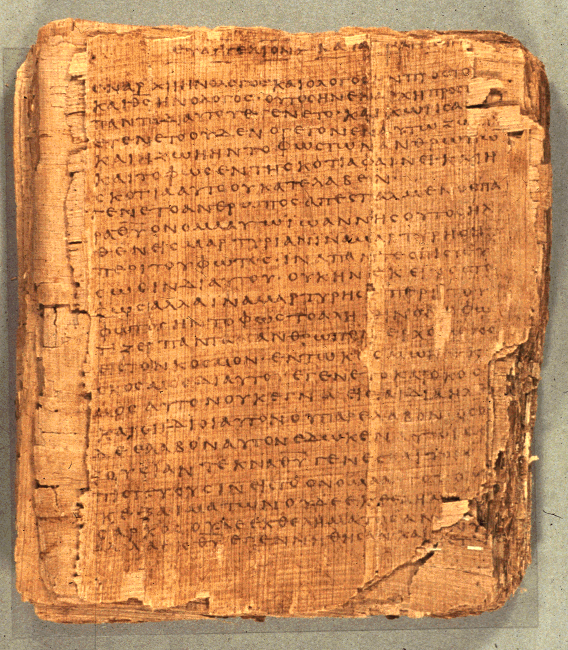Alienation, Reconciliation, and Perseverence in Colossians 1:21-23, Part 4
 I thought I would take time in this post to address reconciliation a bit more. Pittsley had earlier directed me to a previous discussion found here. At the risk of repeating that discussion, I will interject some thoughts. I thought I would take time in this post to address reconciliation a bit more. Pittsley had earlier directed me to a previous discussion found here. At the risk of repeating that discussion, I will interject some thoughts.KWM's discussion reflected the "man" position that I had earlier mentioned. That is, Man is the one reconciled to God. His discussion is excellent: he interacts with multiple texts and even some authors. I would like to cite some authors that have championed the "man" position. S. Lewis Johnson, Jr. stated: The important thing to remember about both words (katallasso and apokatallasso) is that they never denote mutual reconciliation after mutual hostility... --"Studies in the Epistle to the Colossians: Part IV: From Enmity to Amity" Bib Sac 119 (Spring 1962): 143 Geisler addressed Col 1:19-20 stating that there are, two sides ... the objective side, the potential for which Christ accomplished for all humankind (v. 19), and the subjective side, by which we actually become reconciled to God (v. 20). Once again, the whole world is reconciled in the sense of being made savable by Christ (v. 19), but not in the sense of being saved (see Rom. 5:10; 2 Cor 5:20). It is also noteworthy that God is not reconciled to us; we are reconciled to Him. God does not move in relation to the sinner; the sinner moves in relation to Him. --Systematic Theolo, 4 vols. (Minneapolis: Bethany, 2004), 3:226 Reymond provides some cogent counterpoints relating to Rom 5:10-11 (esp. v. 10): It is beyond all possibility that Paul intended to say: "At the very time when we were hostile to God, we were reconciled to God through the death of his Son," meaning thereby that our hostility toward God was removed through the death of God's Son, an operation which in fact did not occur. It is clearly God's active hostility toward men and the means which he provided to remove it rather then men's attitude toward God that is in the forefront of Paul's teaching on reconciliation. --A New Systematic Theolog, p. 646 Also: ... 5:10 implies that Christ's punctiliar reconciliatory work which shall save us from the divine wrath was also Godward in its reference. --Ibid, p. 647 Johnson counters stating that: Reconciliation is manward, not Godward, in its direction. It is God's reconciling of man "unto himself" (v. 20). God never has had to be reconciled to man; He has always love man. --"From Enmity to Amity," p. 143 While I agree with Johnson that God has always loved man, how can he argue that God does not need to be reconciled with man seeing as how God hates sinners (Ps 5:5)? Geisler is on the same page with Johnson, stating that it is not God that has moved, but Man. I cannot, however, shake off the arguments of Reymond, Murray, and Berkof. I feel that in my previous post, Berkof left me no option but the "both" position. Due to this, I have to issues with singing the hymn by Wesley as either "My God is reconciled" or "I am now reconciled." Both parties enjoy a state of peace. While some may disagree with this conclusion, I think that we can all agree on this: ... at the very time when he had every reason to loathe us and in fact felt a holy hostility toward us, yet out of love for us he saved us. --Reymond, Systematic, p. 646. |



















Comments on "Alienation, Reconciliation, and Perseverence in Colossians 1:21-23, Part 4"
-
 CWatson said ... (Tuesday, September 19, 2006 11:36:00 AM) :
CWatson said ... (Tuesday, September 19, 2006 11:36:00 AM) :
-
 petros said ... (Tuesday, September 19, 2006 8:40:00 PM) :
petros said ... (Tuesday, September 19, 2006 8:40:00 PM) :
-
 CWatson said ... (Wednesday, September 20, 2006 7:24:00 AM) :
CWatson said ... (Wednesday, September 20, 2006 7:24:00 AM) :
post a commentThis is a true statement and can be explained through the doctrine of propitiation. Reconciliation was made possible through the death of Christ removing (or satisfying) the wrath of God for individual, personal sin. We who were once far are made nigh, but God's wrath has been appeased upon those who have been made nigh.
I agree wholeheartedly! I mentioned a previous post that the cross work of Christ is indeed the means by which reconciliation might be accomplished.
My real focus was to delve into the different positions on "who" is reconciled in reconciliation. I appreciate the point about propitiation: how very closely it is in relationship to the topic.
P.S. Do you know where Makijina (sp) is at now? Is he teaching anywhere?
From what I know, not many people know. "Dad" says he's working but not teaching